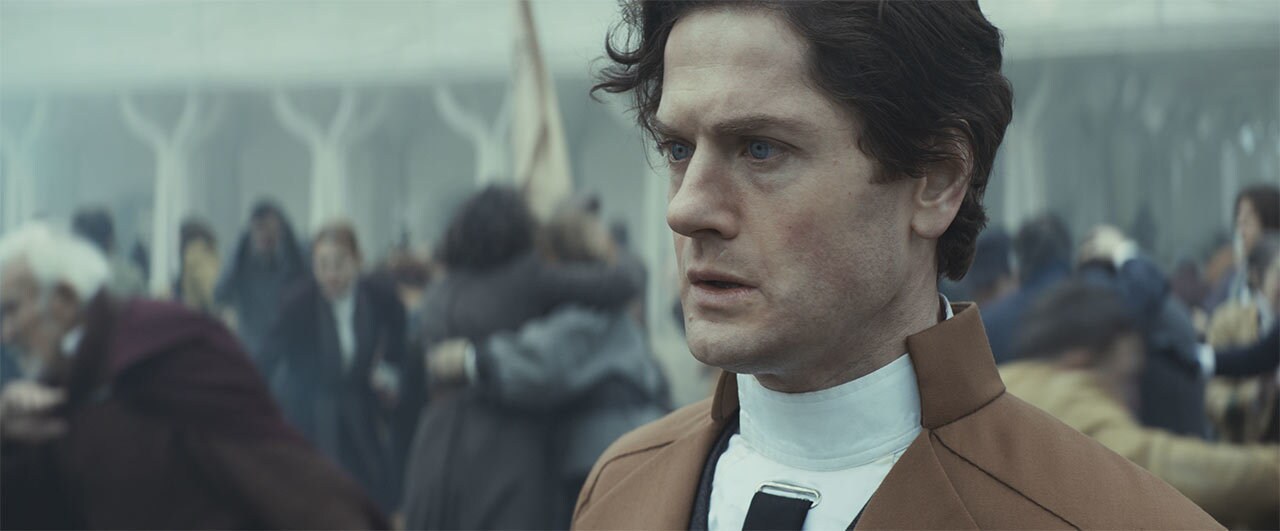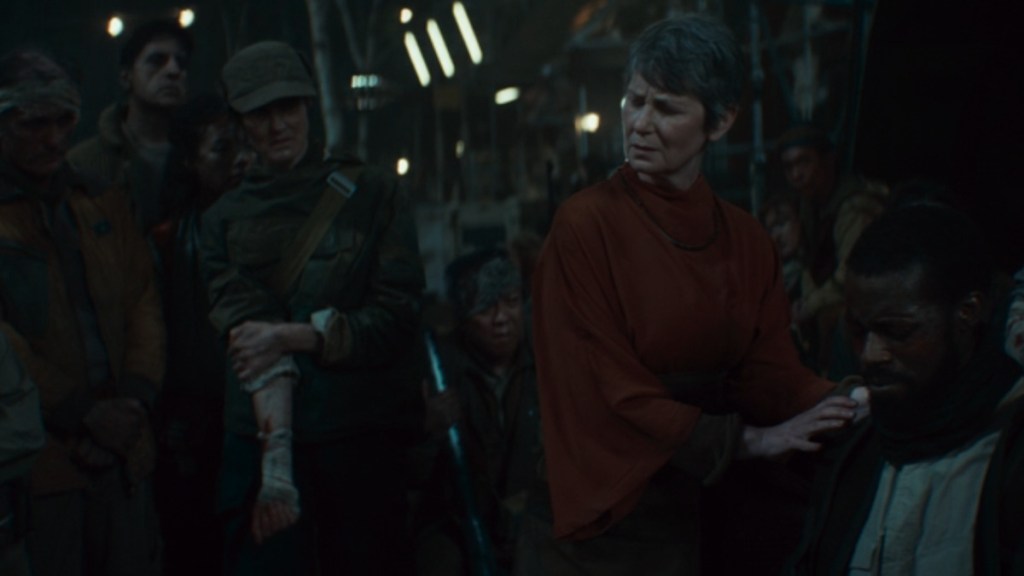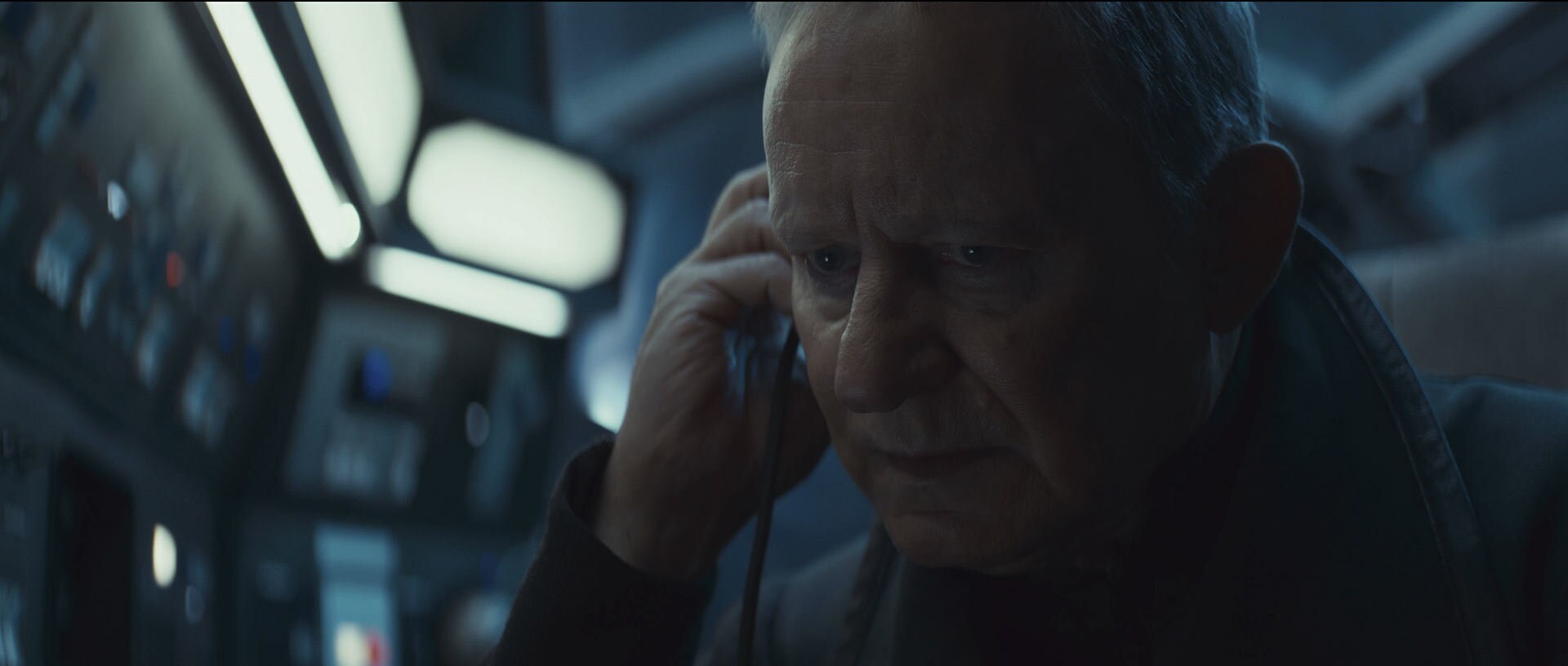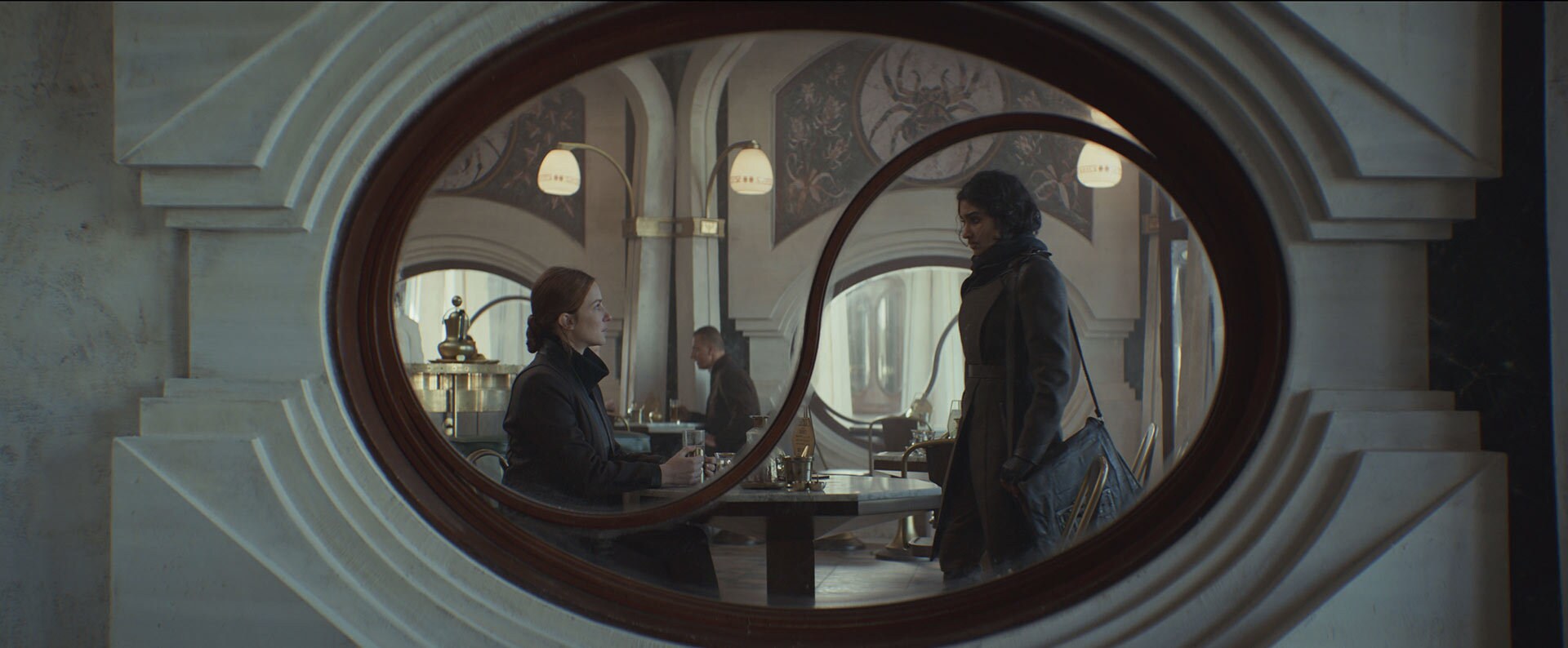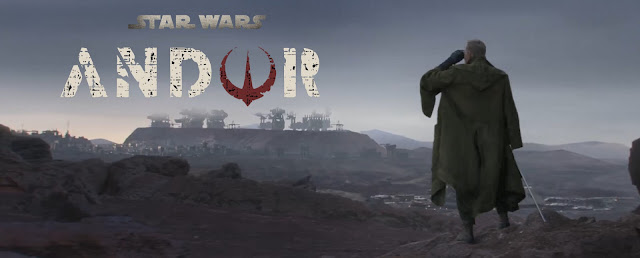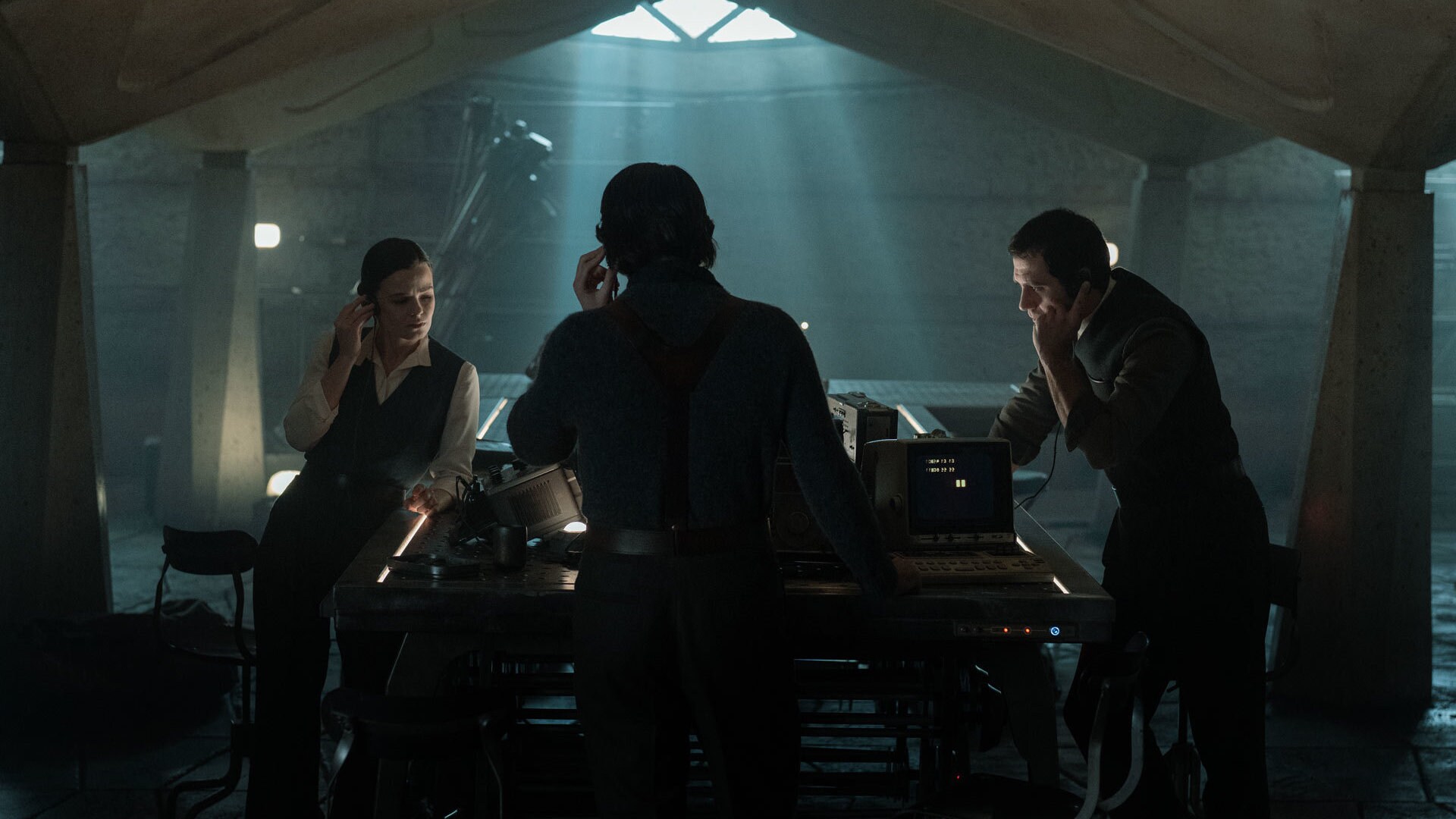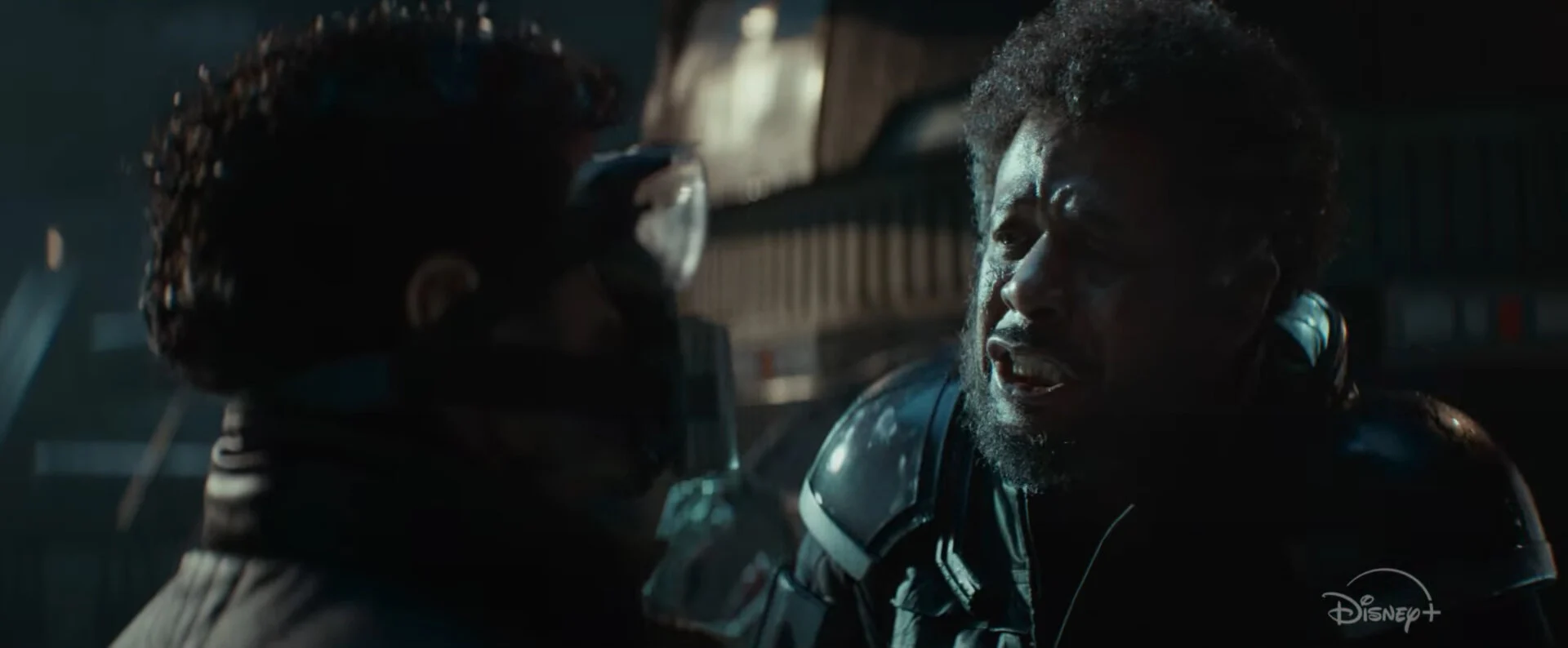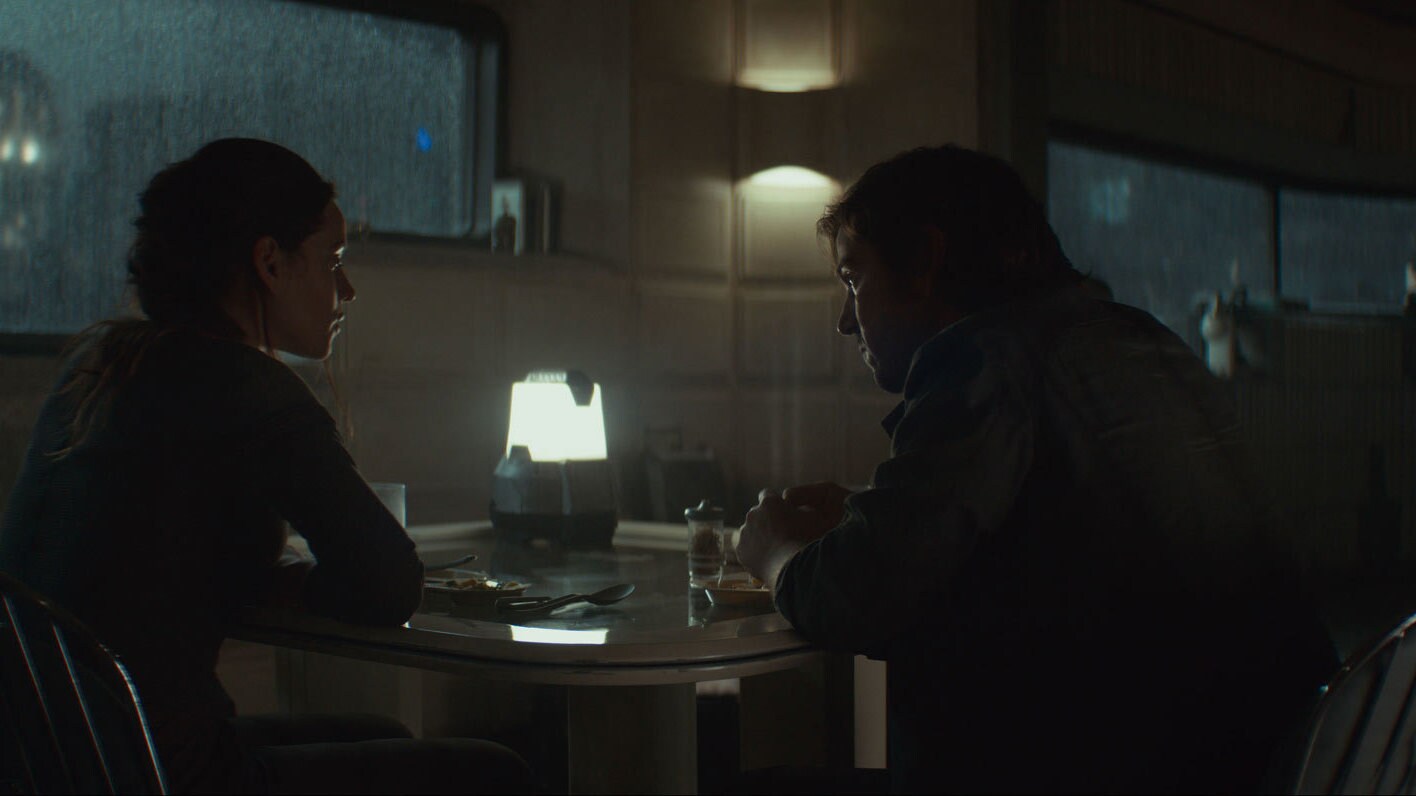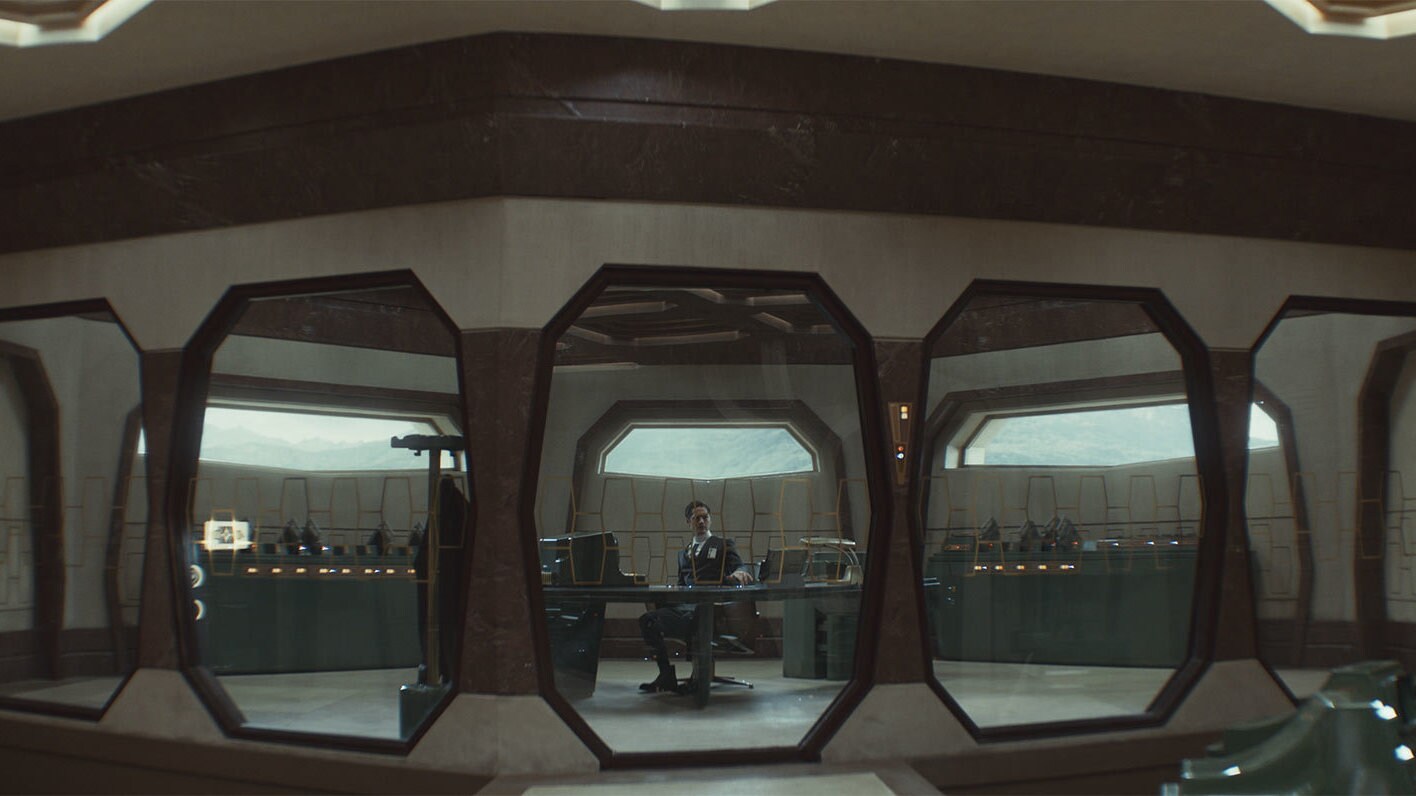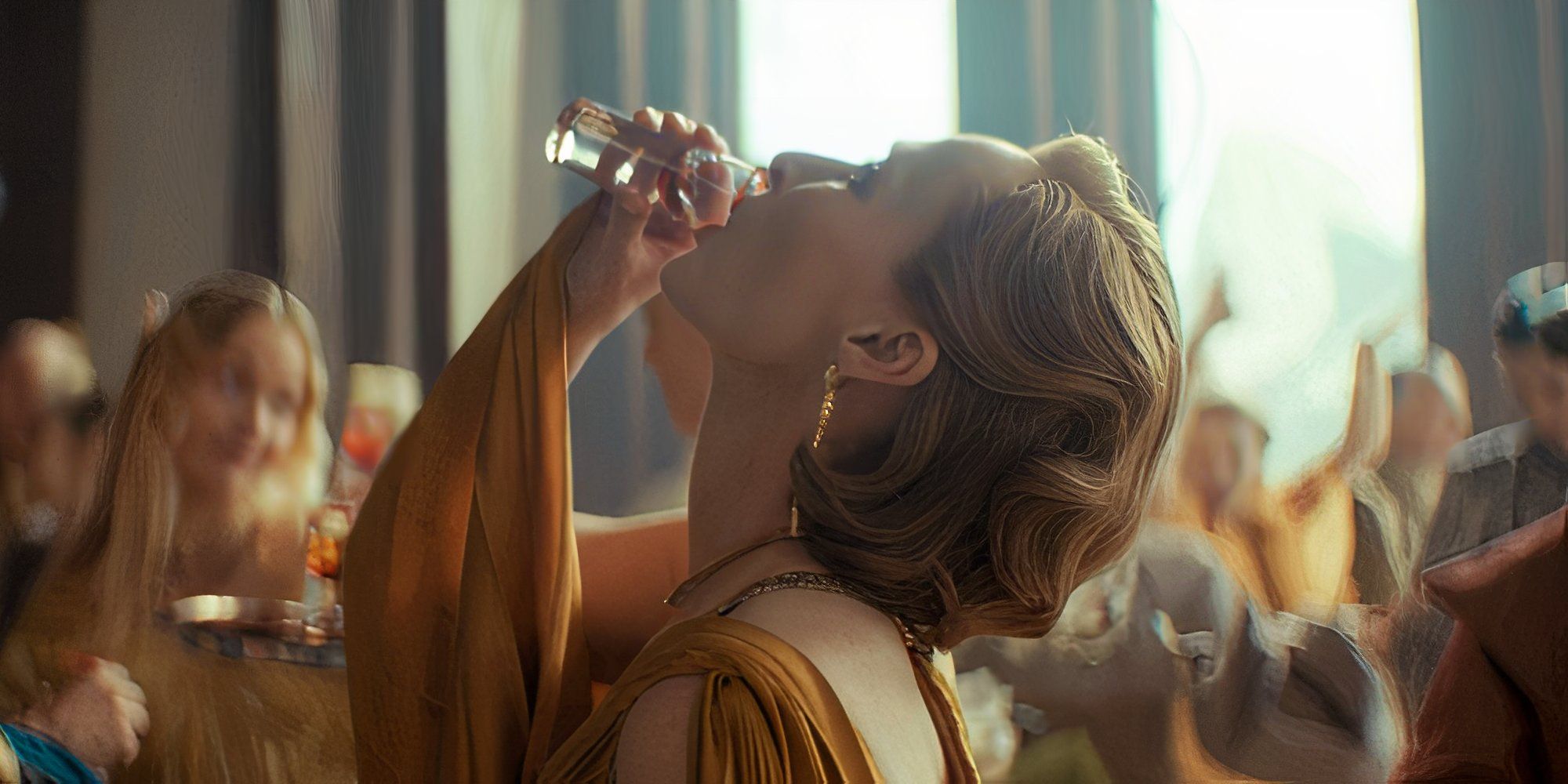In season two, I never expected to become such a fan of Luthen and Kleya.
In some ways, episode nine is the end of Andor season two in that it wraps up the Ghorman plotline and Cassian’s arc with Bix and his dedication to the rebellion. In the final three episodes, the season pivots to align with Rogue One and present the characters we expect to see in the movie (and wrap up the loose ends of the ones we don’t). While not as smooth a storytelling experience as season one, episode ten is an intense story that stands alone to show the beginning and end of Luthen and Kleya’s relationship.
In “Make It Stop,” Kleya and Luthen prepare to meet Lonni (Robert Emms), their inside person at the ISB. This type of meeting has become even riskier after Mon Mothma’s speech a year ago. Back then, Cassian had urged Luthen to leave Coruscant because it was only a matter of time before the ISB found him, but Luthen has held on for another year. Even he recognizes the risk as he says to Kleya: “I think we used up all the perfect.”
When Luthen meets with Lonni, the plan that was revealed by Krennic in episode one becomes clear to Luthen. The energy program was a lie to obscure building the Death Star. Lonni was able to find this information by breaking into Dedra Meero’s files. Unfortunately for Lonni, Luthen’s dedication to the cause means Lonni cannot walk away with this information, and Luthen leaves him dead.
After Luthen walks away, the next shot is sideways, showing how this information has repositioned his worldview. Now, all that matters is that someone is able to deliver the information to the Rebel Alliance—but Lonni revealed to Luthen that Dedra is going to target him very soon.
Luthen leaves out Lonni’s warning about Dedra’s impending raid when he gives Kleya the information about the weapon and the engineer, Galen Erso. In a rare protective moment, Luthen insists Kleya leave with the information while he returns to the shop to burn their comms, knowing Dedra might arrive—and that she does.
Watching Dedra and Luthen finally meet was a scene we’d all been waiting for and had a level of intensity that had me literally at the edge of my seat. After the violence of Ghorman and the espionage surrounding Mothma’s speech, this moment of doublespeak where they both, for a few seconds, play at not knowing the other, was a different kind of intensity.
Luthen resumes his role one last time as the rare artifact salesman for the wealthy as Dedra walks in, claiming she has an artifact to sell him. At first, they test each other, such as when Dedra asks if everything is “real” and Luthen states there are only two pieces of “questionable provenance,” which is of course a reference to them standing there, but Dedra ends their conversation by revealing the Imperial starpath unit that had originally brought Luthen and Cassian together. Luthen knows this is the end for him, and Dedra revels in the moment, producing a memorable exchange between fascist and anti-fascist:
Dedra: “You disgust me.”
Luthen: “You want to know why?”
Dedra: “Everything you stand for.”
Luthen: “Freedom scares you.”
He goes on to say one of my favorite lines from Luthen: “The rebellion isn’t here anymore. It’s flown away. It’s everywhere now. There’s a whole galaxy out there waiting to disgust you.”
While Luthen has quite the bodycount to his name, one reason he’s good at what he does is because he is not exempt from this same violence. In order to take his secrets with him, he stabs himself. At this moment, the episode turns, and the second half focuses on Kleya as she realizes she must make sure Luthen dies.
The second half of the episode is interspersed with flashbacks, including when Kleya and Luthen first meet. In a parallel to Cassian, Luthen rescues Kleya from another genocide committed by the Empire. He is complicit in this genocide as a Sergeant, his radio calling out the acts of violence being committed outside the ship he is currently hiding in: people are ordered to stand against a wall, followed by blaster fire and screaming. Other orders demonstrate the mass killing. It’s never made clear what planet this genocide is happening on, but it parallels Ghorman and Cassian’s planet of Kenari, where there are so few survivors.
As Kleya prepares to infiltrate the hospital where Luthen is being kept alive by a machine, the flashbacks show them fencing antiquities and observing Imperial atrocities. At first, young Kleya, radicalized by genocide, is frustrated with their progress, but the more senior Luthen helps her keep from burning up in her rage: “We fight to win. That means we lose, and lose and lose and lose, until we’re ready. All you know now is how much you hate. You bank that. You hide that. You keep it alive until you know what to do with it.”
Even as a child, Luthen doesn’t call Kleya his daughter, and throughout the show, while there is care in their relationship, they appear more as partners than familial. Yet, Kleya’s careful mask comes down as she murders her way into the ISB-controlled hospital wing and reaches Luthen’s bedside. Without hesitation, she releases the machine keeping Luthen alive, but she does allow herself a brief show of affection before she hurries out, escaping back to the Coruscant hideout with the information about the building of the Death Star.
While most of the episode is focused on Kleya and Luthen, Dedra is in the process of learning an important lesson about fascism—they eat their own. As Robert Evans and his co-hosts on It Could Happen Here point out in their breakdown of episodes 10-12, Dedra is a parallel of the spunky cop who breaks a few rules to take down the big bad, but Andor reveals the copoganda of this type of figure through Dedra, who is not someone we root for but rather a fascist who committed genocide. Dedra is arrested by the ISB even though she’s finally completed her longtime mission to capture Axis. She's worked hard to achieve this moment, but rather than be rewarded, she's immediately arrested by a man who used to be her underling and is now put in a position of power over her. She cannot breakthrough the fascist patriarchy even though she is a believer in their ideology.
The episode’s final shot is a slow fade to black of Luthen’s body. Without him, it’s questionable if Yavin would have existed, and certainly, Cassian wouldn’t have joined the rebellion. While Luthen is not the most sympathetic character, he does dedicate everything to the cause, as he points out in his monologue to Lonni in episode ten of season one: “I’ve given up all chance at inner peace. […] I’m damned for what I do.”
In perhaps a less dramatic tone, activist Dean Spade puts it this way: “Do I want to be in the fight until I die, even though I don’t know how it’s going to turn out? Because that’s how everyone who has fought for liberation had to BE. It’s being with the uncertainty. Part of that, for me, is shifting our sense of ourselves from some good outcome that can definitely happen towards just the pleasure of being with each other in the struggle.”
Many characters exhibit this sense of purpose, and the show demonstrates multiple ways of living in this moment, from Luthen’s loss of inner peace to Maarva’s speech at the end of season one where she describes how she’d live her life differently, declaring, “Fight the empire!” Luthen and Kleya are one of these paths, and the show makes few judgements about the different paths or tools to fight the Empire, but what it is important is that dedication to the fight.
--
POSTED BY: Phoebe Wagner (she/they) is an author, editor, and academic writing and living at the intersection of speculative fiction and environmentalism.

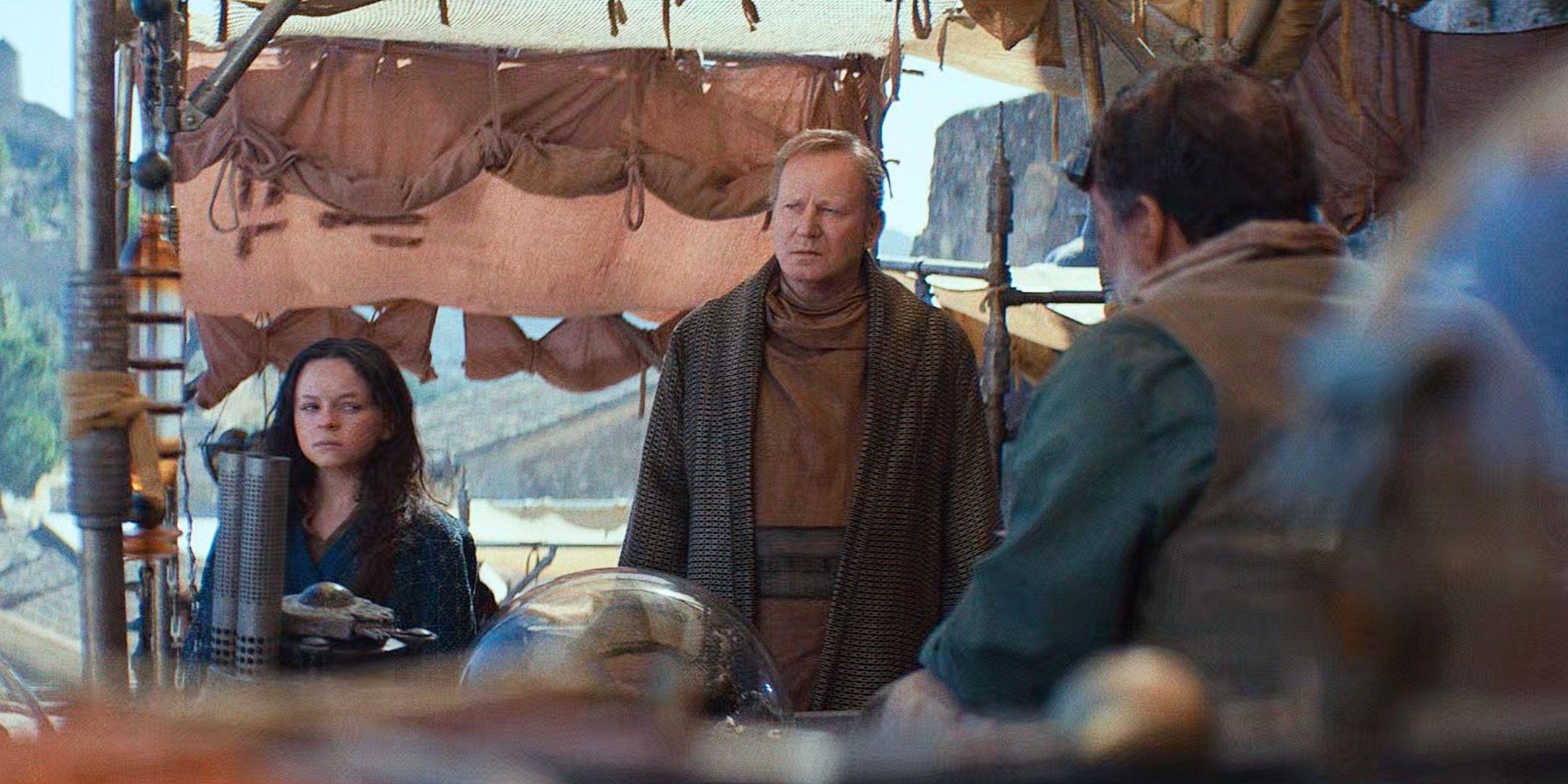
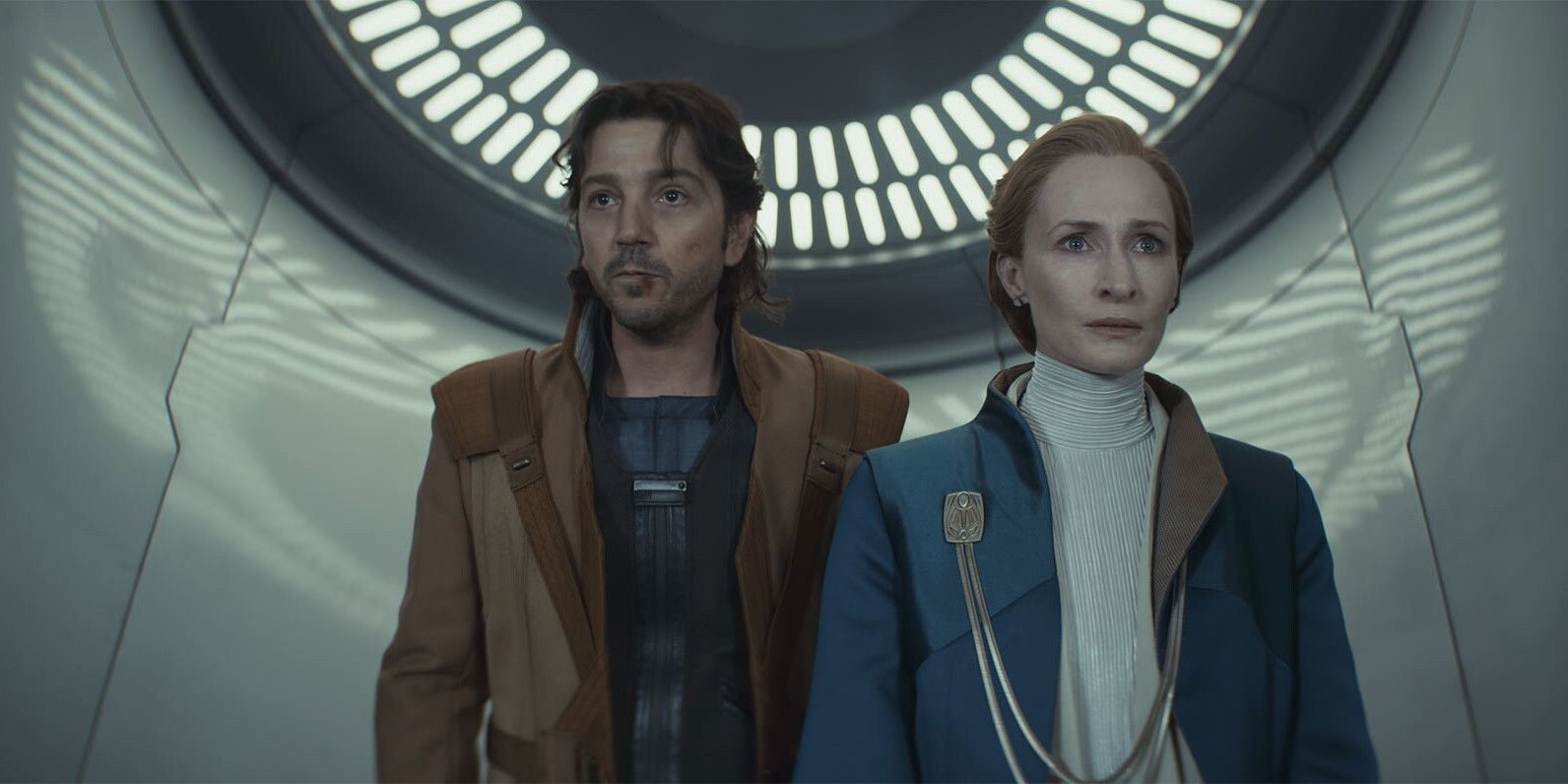
:max_bytes(150000):strip_icc()/Genevieve-O-Reilly-Andor-010725-2-38e011b3f1184685bc1c9df14e71f7a8.jpg)

